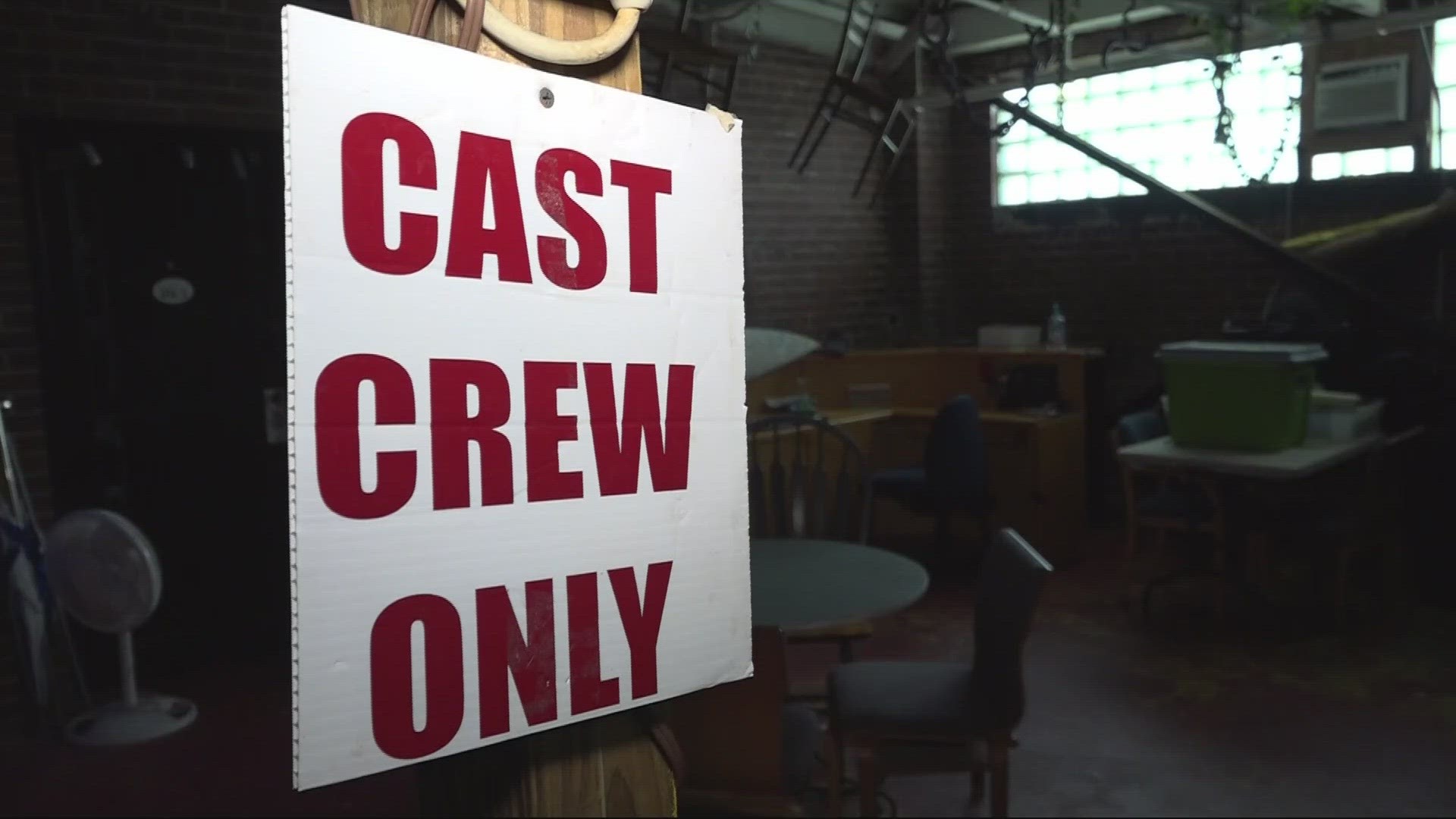ST. MARYS, Ga. — Smaller Georgia cities' film industries are feeling the weight of the screenwriters and actors strike.
A record number, almost $4.5 billion was generated from film productions in the state last year, according to the governor. The economic boost from film production in St. Marys, ends up saving taxpayers in Camden County, the city's tourism director, Angela Wigger explains. But, the strike means cities aren't seeing that money.
"This strike could hurt the state of Georgia as well as Camden County and other counties as well," said Camden County Film Commissioner Douglas Vaught.
Vaught works behind the scenes at Theatre By the Trax and also helps get St. Marys on the big screen. But, as the screenwriters and actors strike continues, Vaught says the film scouts he talks to every week have hit pause on their work.
"If the strike persists and some of the big companies stop shooting, stop filming and don't come, then it'll impact us," Vaught said. "For example, when Royal Pains shot the first few episodes downtown, they rented stuff from all over. And we just found out that they needed everything."
Vaught says "everything" means huge tents, caterers, equipment, fuel and room and board. Wigger says tourism as a whole saves Camden County households over $500 a year in taxes. They don't have the direct impact numbers for the film industry on the county.
Vaught says independent films may still come, but big blockbuster productions will likely be leaving the movie clap boards at home until the strike is over.
Currently, there are 20 productions filming in the state, according to the Georgia Department of Economic Development.
Along with anger over wages, screenwriters and actors fear artificial intelligence will replace them in at least parts of the jobs. The writers strike is nearing the two-month mark and when actors joined them, it became the first time both were on strike at the same time since Ronald Reagan was the actors’ guild president, according to SAG-AFTRA.

